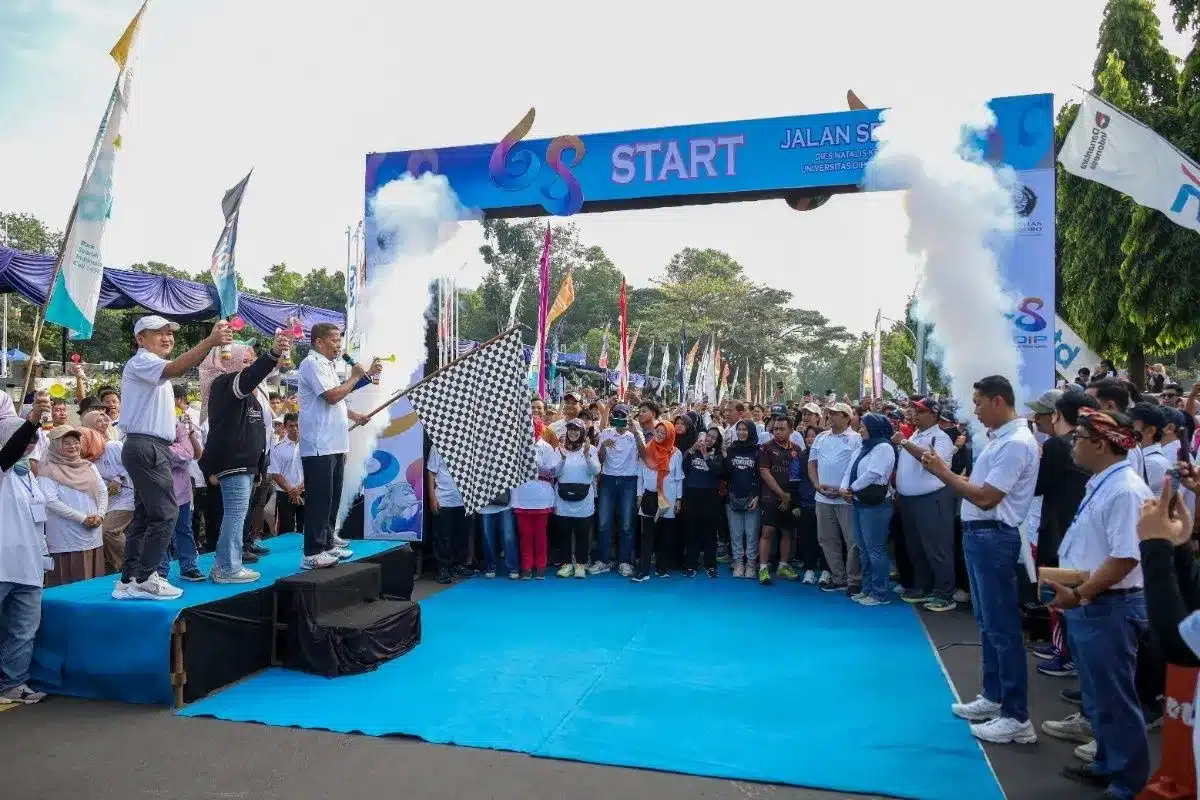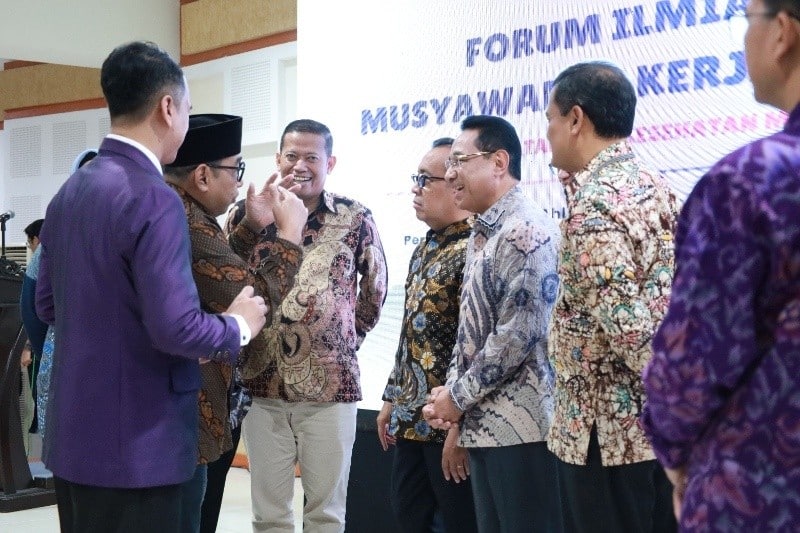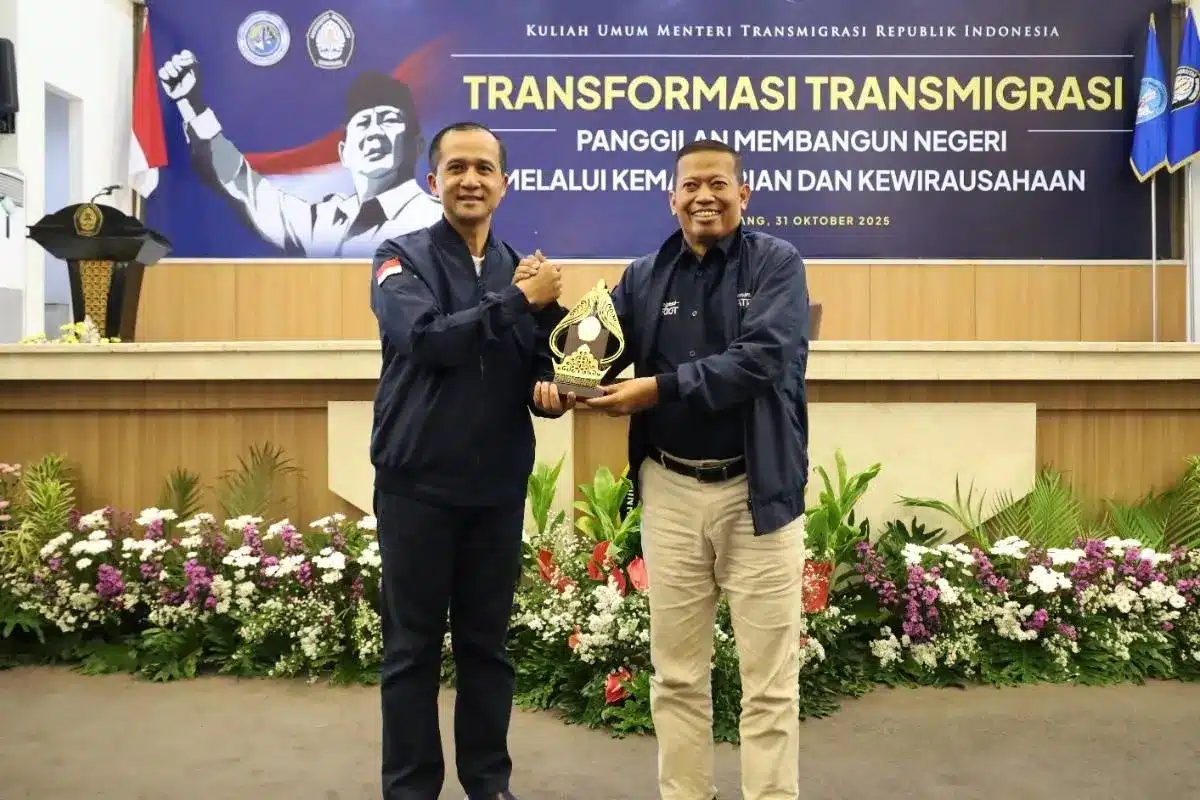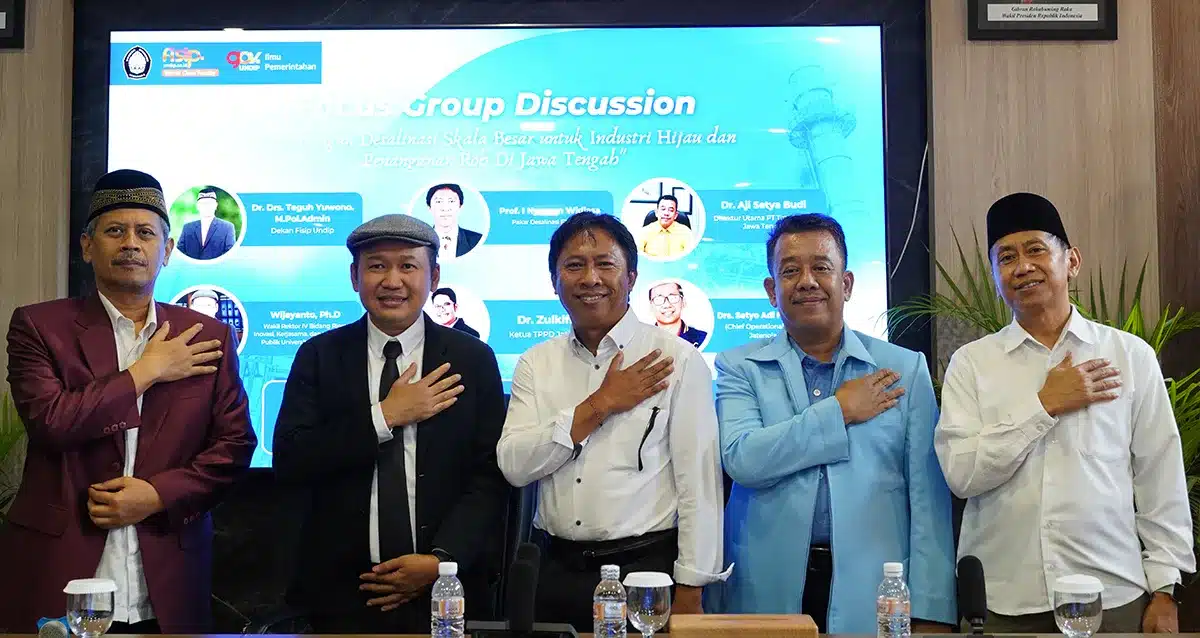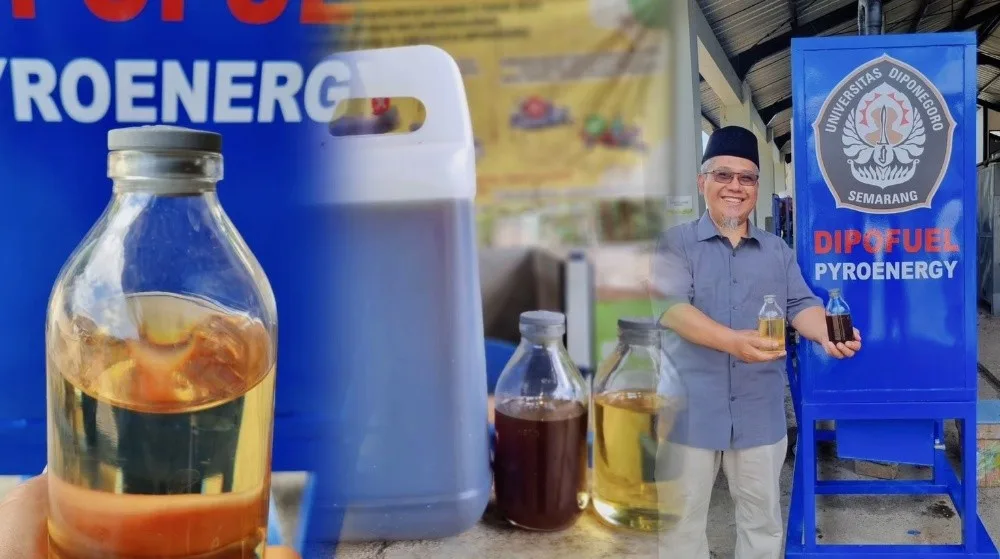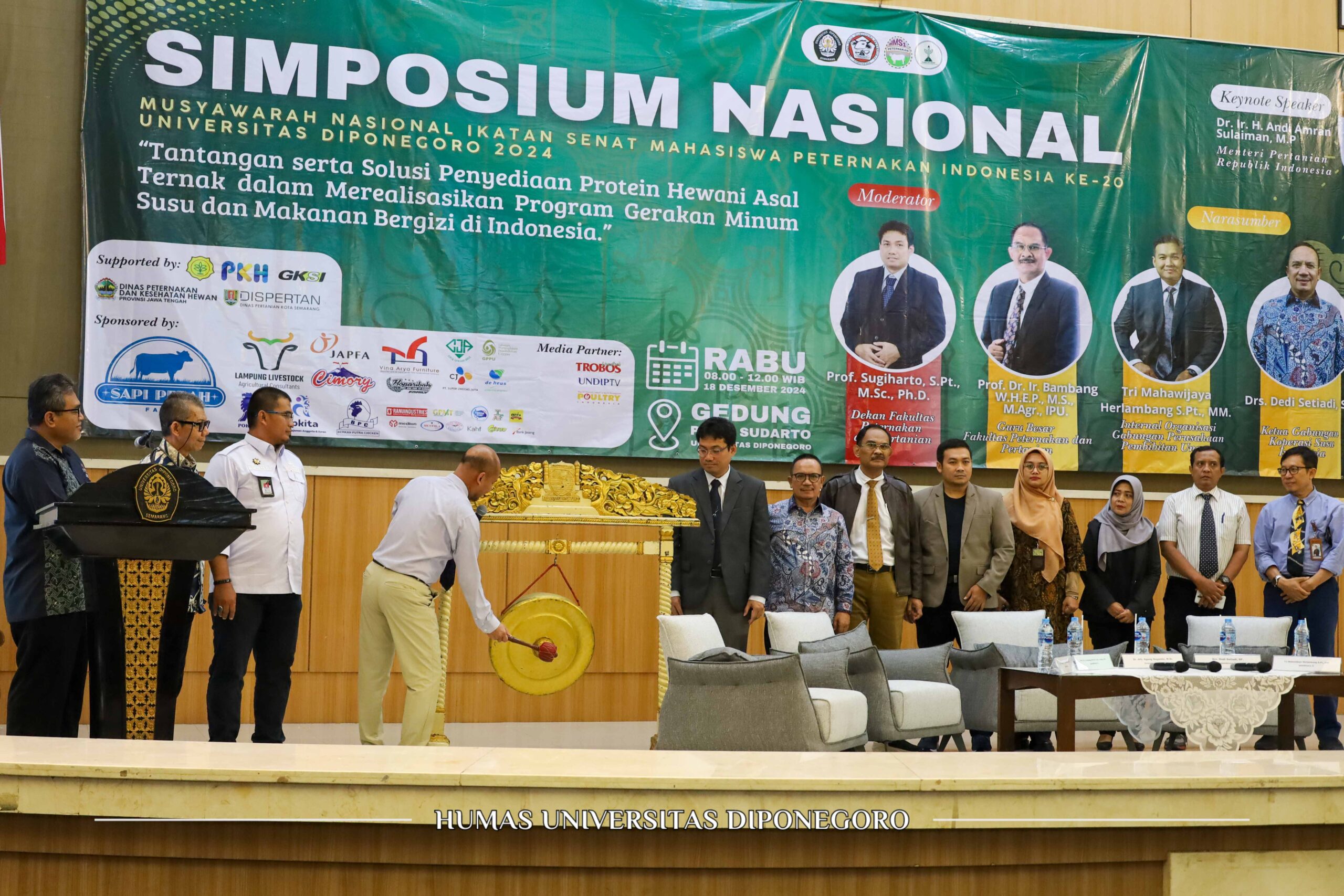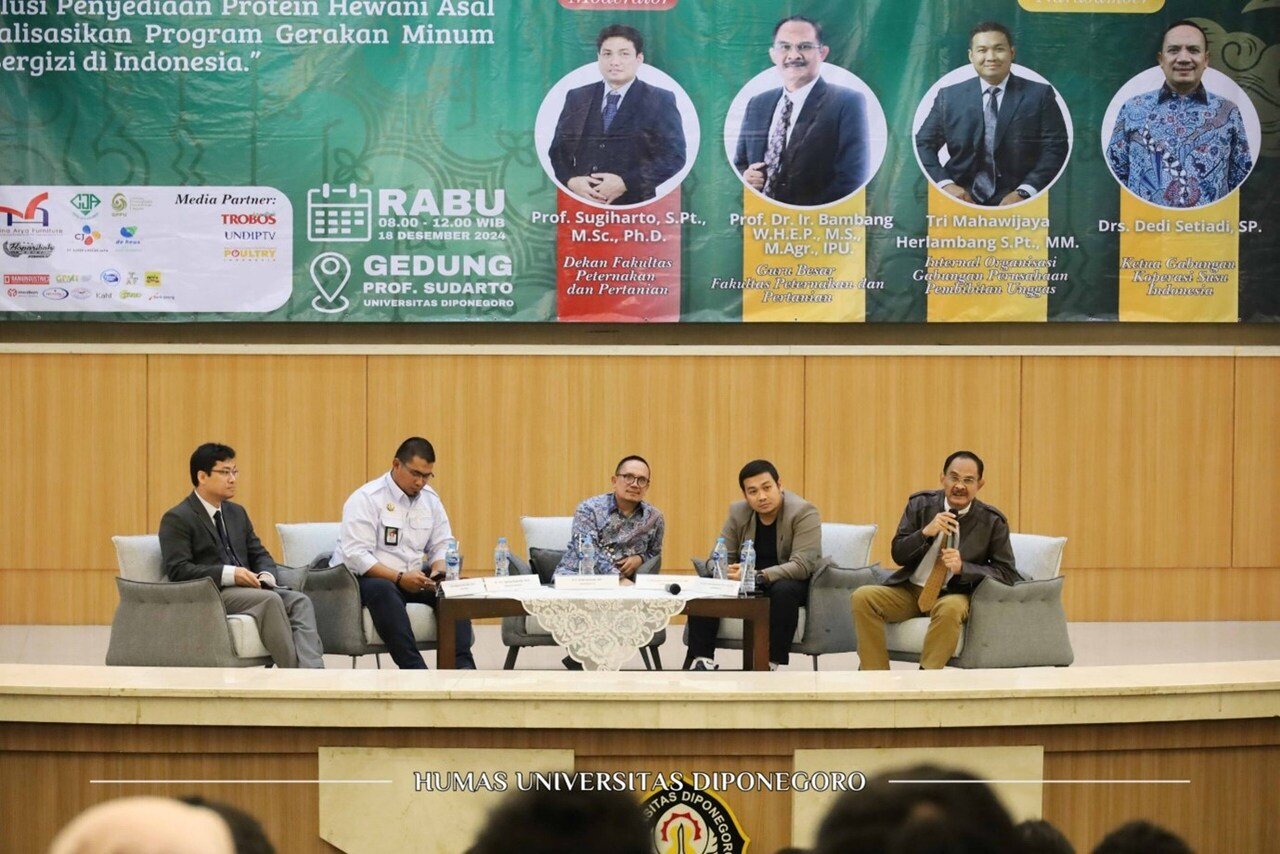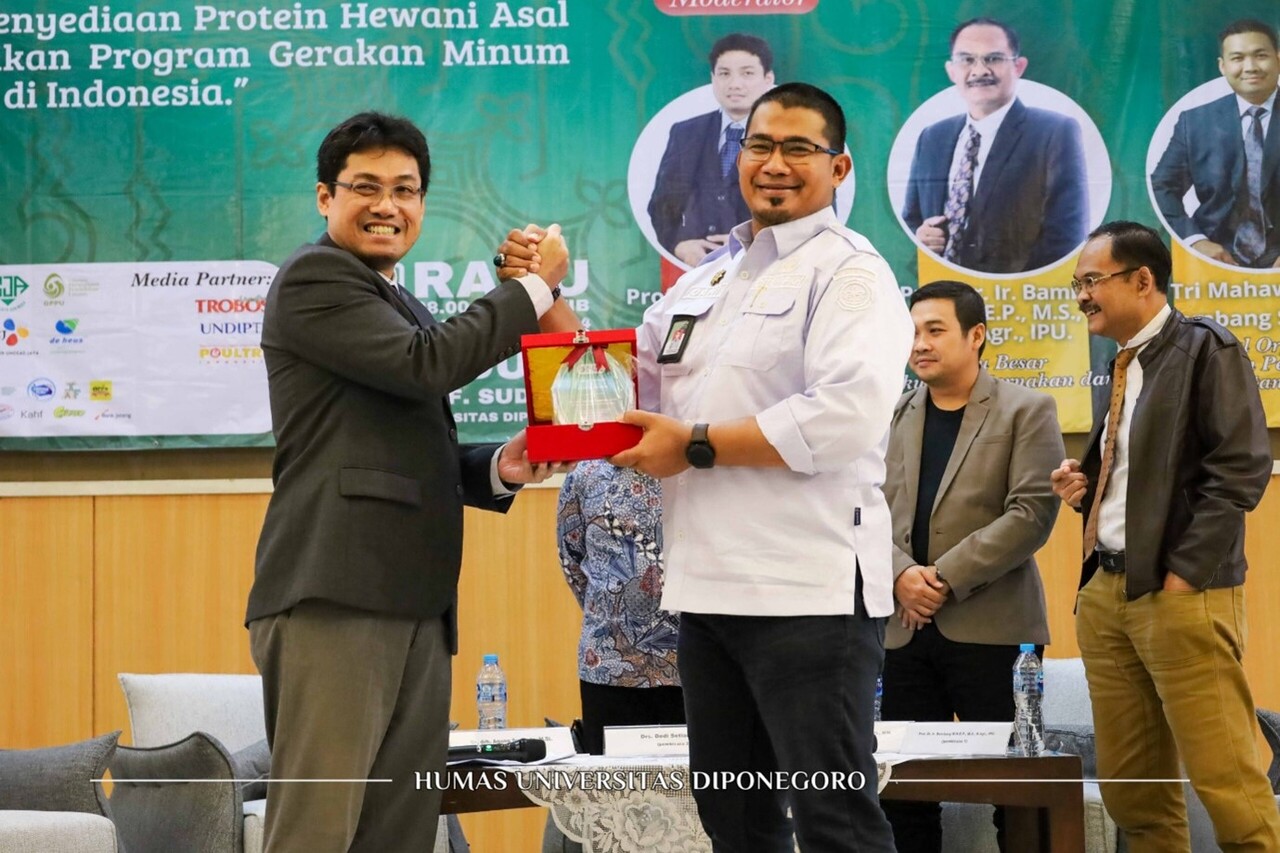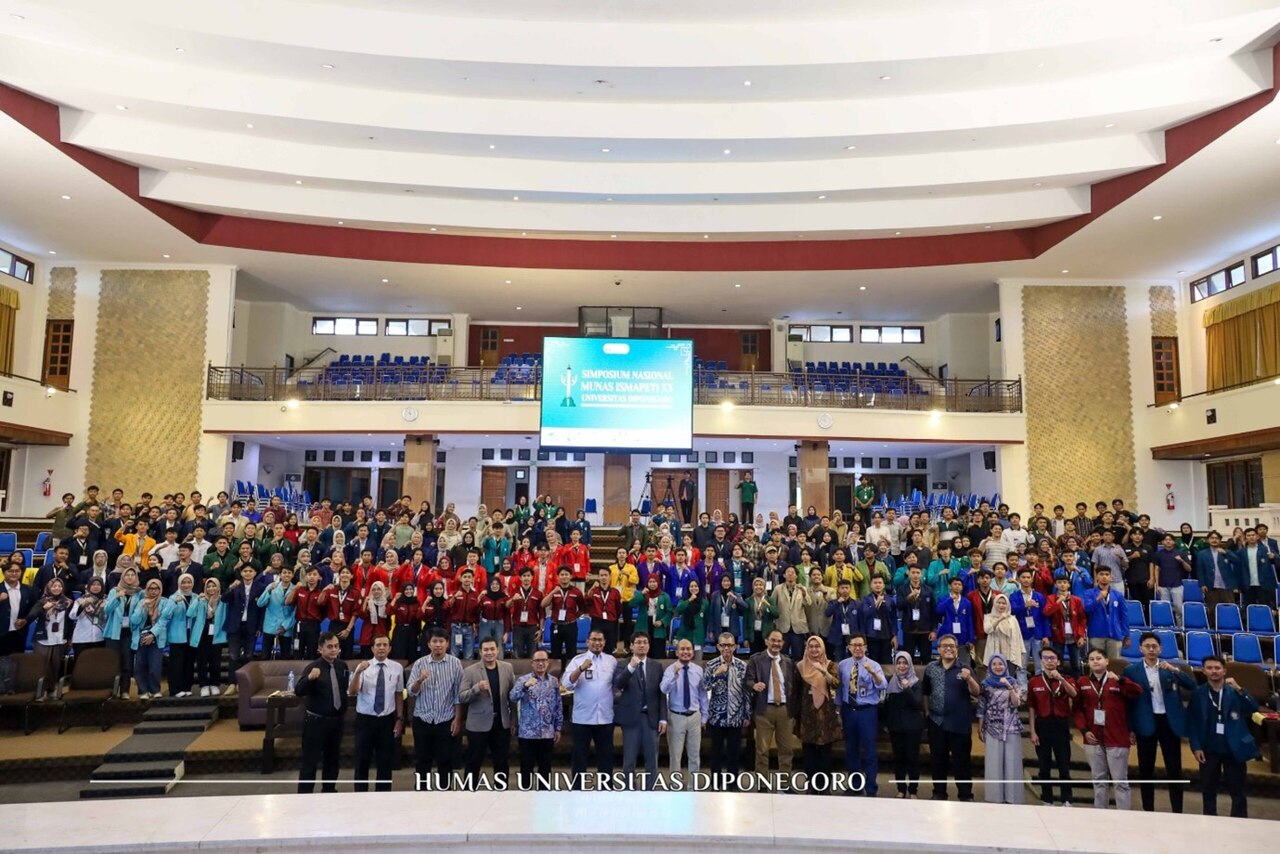UNDIP – In an offer to support the strengthening of Indonesia’s livestock sector and realize the national animal food self-sufficiency program, the Bachelor’s Student Association of Animal Science, Faculty of Animal and Agricultural Sciences, Universitas Diponegoro, organized a National Symposium. This event formed an integral part of the 20th National Congress of the Indonesian Association of Student Senates of Animal Science (Ikatan Senat Mahasiswa Peternakan Indonesia / ISMAPETI XX).
The symposium, held at Prof. Soedarto, S.H. Building, Universitas Diponegoro Campus, Tembalang, Semarang, on Wednesday (18/12), brought together academics, practitioners, and representatives from non-governmental organizations (NGOs). The keynote speaker was Ir. Dani Kusworo, S.Pt., M.Si., Head of the Balai Besar Perbibitan Ternak Unggul & HPT Baturraden.
The National Symposium of ISMAPETI XX served as a scientific forum to share knowledge, innovative ideas, and recent program outcomes related to optimizing the livestock sector toward achieving national animal food self-sufficiency and creating a sustainable livestock future. It also provided broader and deeper insights into the challenges and solutions for supplying animal-based protein to support the implementation of the National Milk-Drinking and Nutritious Food Program in Indonesia.
Representing the UNDIP Rector, Prof. Dr.rer.nat. Heru Susanto, S.T., M.M., M.T., Vice Rector for Academic and Student Affairs, delivered a speech and officially opened the event. He expressed hope that the symposium would provide valuable insights for both the public and the government. “This event should not merely end without impact. It would be better to provide recommendations. With the participation of competent speakers, ISMAPETI can produce significant narratives and studies,” said Prof. Heru.
Representing the Head of the National Food Agency (Badan Pangan Nasional / Bapanas), Wara Fitria Tristiyanti, S.P., M.Gz., a First Expert Food Security Analyst, emphasized that the success of the milk-drinking and nutritious eating program requires synergy and collaboration among government agencies, state-owned enterprises (BUMN), experts, academics, and business actors. The penta-helix synergy is key to ensuring stable food supply chains from production to consumption.
“Through this national symposium, let us take action and make decisions considering all aspects to achieve national food security. Hopefully, this event will provide significant benefits for all parties and drive the welfare of Indonesian society,” Wara concluded in her speech delivering the speech of the Head of Bapanas.
The interactive discussion, moderated by Prof. Sugiharto, S.Pt., M.Sc., Ph.D., Dean of the Faculty of Animal and Agricultural Sciences, Universitas Diponegoro, featured prominent speakers, including Prof. Dr. Ir. Bambang Waluyo Hadi Eko Prasetiyono, MS, M.Agr.Sc., IPU. (Head of Management of PSDKU UNDIP); Drs. Dedi Setiadi, SP., Chairman of the Indonesian Milk Cooperatives Association (Gabungan Koperasi Susu Indonesia / GKSI); and Tri Mahawijaya Herlambang, S.Pt., MM., Internal Organization of the Poultry Breeding Companies Association.
The keynote speaker, Dani Kusworo, highlighted that collaboration, synergy, and inter-ministerial/agency support are crucial for accelerating national milk and meat production to support the Free Nutritious Food Program (MBG).
Prof. Bambang WHEP, in his presentation titled “Challenges and Solutions for Providing Livestock-Based Protein in Realizing the National Milk-Drinking and Nutritious Food Program,” emphasized that the Nutritious Food Program is a national priority program addressing stunting, wasting, and underweight issues. According to 2022 data from the Ministry of Health, 65% of school-aged children in Indonesia do not eat breakfast regularly.
Moreover, every child has the right to life, health, education, and optimal development, both physically and emotionally (UN Convention on the Rights of the Child, 1989). Nutritious Food Program can serve as a captive market for local agricultural and livestock products, enhancing farmers’ incomes and contributing to economic growth.
In his presentation on “Challenges and Opportunities for Dairy Farming Businesses to Support the Free Nutritious Food Program,” Dedi Setiadi emphasized that the program prioritizes using domestic fresh milk. “Adding fresh milk to the program is the right step, as milk is an affordable and highly nutritious source of animal protein,” Dedi stated.
“GKSI is committed to supporting the Nutritious Food Program by supplying fresh milk for dairy processing industries and has successfully participated in trial mitigation of the MBG program in cities such as Tangerang, Cilegon, Tegal, Salatiga, Surakarta, Kudus, and Cirebon,” he added.
Before the Nutritious Food Program, the dairy sector often received little attention. However, the program has prompted the government to take livestock development more seriously, creating significant opportunities for Animal Science graduates across Indonesia to contribute to meeting the national demand for animal protein,” Dedi explained.
Tri Mahawijaya discussed “Challenges and Solutions for Providing Animal-Based Protein,” emphasizing the challenge of ensuring access to milk and nutritious food for all societal levels, particularly in rural areas. Protein from animal sources like meat and eggs is essential for a healthy diet, but ensuring sufficient supply remains an issue. NGOs play a vital role in bridging the gap in access to nutritious animal protein. “Through solutions and collaboration, we can realize equitable access to animal protein resources in Indonesia,” he noted.
Through this national symposium, UNDIP reaffirms its commitment to supporting initiatives for strengthening national food security and sustainable livestock development. The symposium aims to provide participants with profound insights into strategic issues like animal protein provision, improving public nutrition, and fostering collaboration between the government, private sector, and community to advance Indonesia’s livestock sector and ensure a sustainable future for livestock farming. (DHW)


